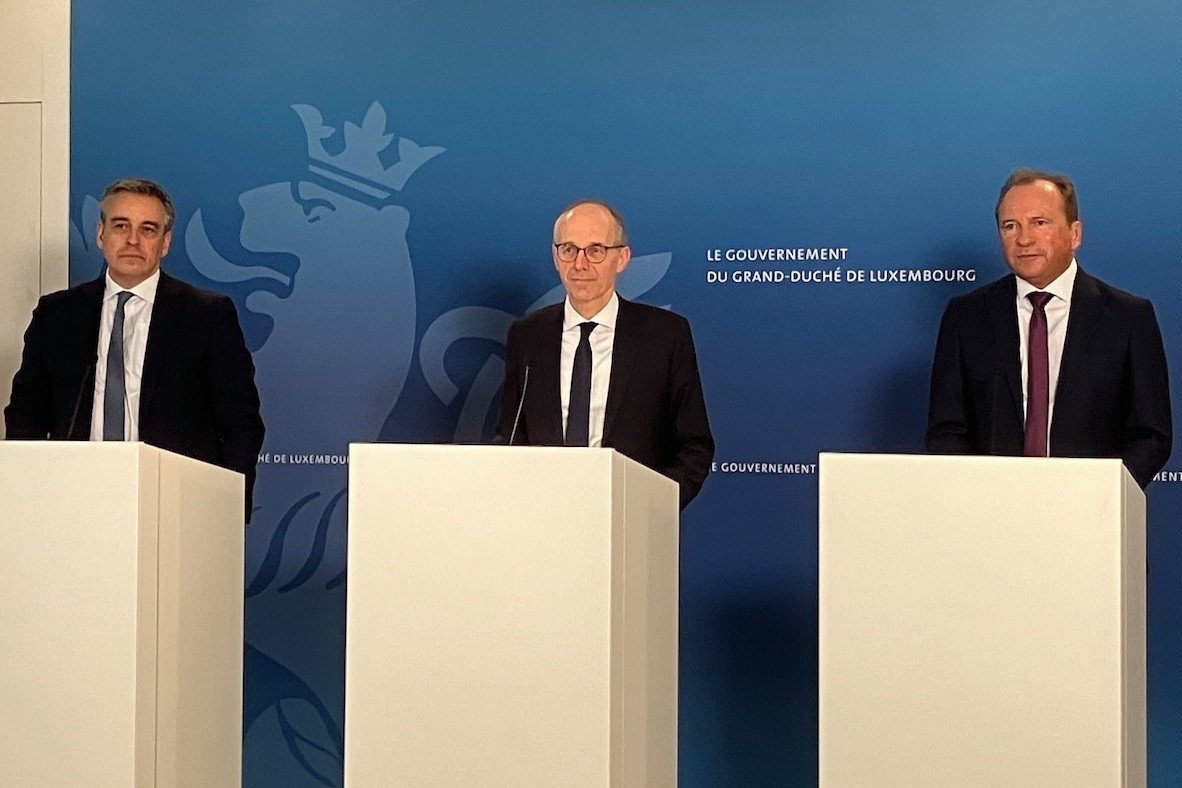After declaring that the construction industry the government is now moving into second gear with a catalogue of tax measures and direct aid. “We have three objectives,” said prime minister (CSV): “to build more homes and give a boost to a sector that is suffering; to increase the housing stock, particularly the government’s affordable housing stock; and to help people buy or rent their homes.”
“With this plan,” added housing minister (DP), “we want to send a message: now is the time to invest in property in Luxembourg.”
The third act of the government’s housing plan will open on 22 February with a major roundtable, the “national housing meeting.” The idea is to bring together all the stakeholders, both public authorities and private operators, “to draw up a catalogue of concrete measures and a timetable.” Procedures will also be discussed and, afterwards, working groups will be set up to refine the measures before they are presented to the Chamber of Deputies.
The new tax measures
The tax measures, still to be refined, have nevertheless taken shape.
The 2024 “Bëllegen Akt” tax credit for the purchase of a principal residence will be increased from €30,000 to €40,000 per person. A new “Bëllegen Akt” tax credit--amounting to €20,000 per person--will also be introduced for people investing in rental property (limited to the “sale in future state of completion,” or VEFA, market).
Next, the tax rate on capital gains will be reduced: the overall rate will be cut by 25% in 2024 if the property is held for at least two years, and by 50% in 2025 if held for five years.
Finally, the rate of accelerated depreciation for housing built for rental purposes will be increased to 6% over six years. The total amount of tax relief will be capped at €250,000.
Other tax measures for 2024 have also been agreed on, with no time limits. The tax deductibility of interest on debts will be increased from €3,000 to €4,000 for the first five years; from €2,250 to €3,000 for six to ten years; and from €1,500 to €2,000 for longer periods. The exemption for net income from letting a property through a property management company has been increased from 75% to 90%. Finally, exemption from income tax on capital gains and profits from disposals will be extended to the housing fund.
A partial tax exemption for premiums paid by companies to rent accommodation for their employees will be introduced. The amount of the tax exemption will be capped and the scheme will be reserved for young employees whose income level does not exceed two-and-a-half times the social minimum wage.
Targeted support measures
The government’s plan also includes support measures for individuals.
The rent subsidy for households with children will be doubled to €80. For prospective home buyers, the interest subsidy will rise from 2.45% to 3.5%. As for the state guarantee for home purchases, the maximum interest rate will rise from 3% to 6%, while the maximum rate in relation to the cost of the project will increase from 10% to 40%.
In terms of measures directly supporting the construction sector, the programme for the acquisition of off-plan projects will be increased in order to strengthen the state’s stock of affordable housing. The 2023 programme provided for the acquisition of 170 homes at a cost of €110m. This programme will be extended for the period 2024-2027, with the aim of acquiring 800 homes for a total of €480m.
Finally, investment in the creation of affordable public housing will reach €923m for the period 2024-2026.
“It’s a well-balanced package of measures for the people and the construction sector,” commented finance minister (CSV).
How much will these measures cost the budget? A total of €135m, according to the finance minister, who insists that these are investments rather than expenditures, and that they will have an impact on the construction sector and ultimately increase tax revenues.
This article in Paperjam. It has been translated and edited for Delano.
